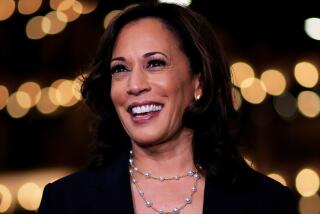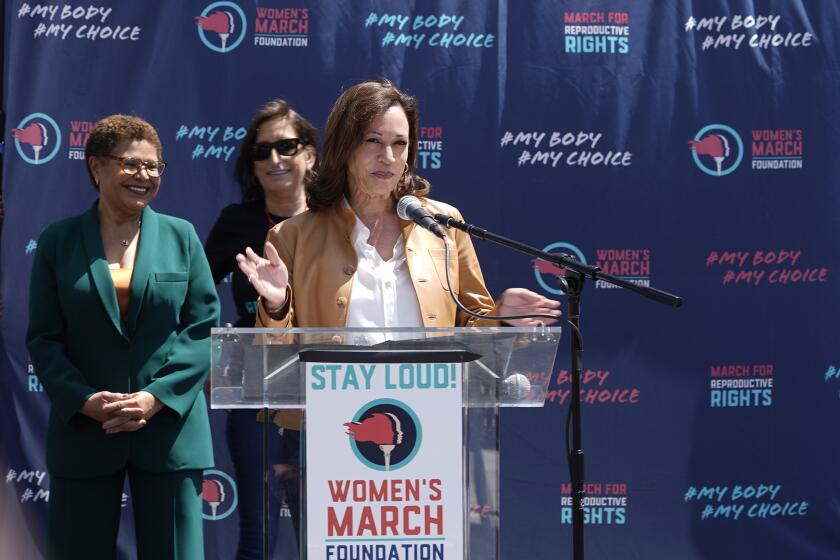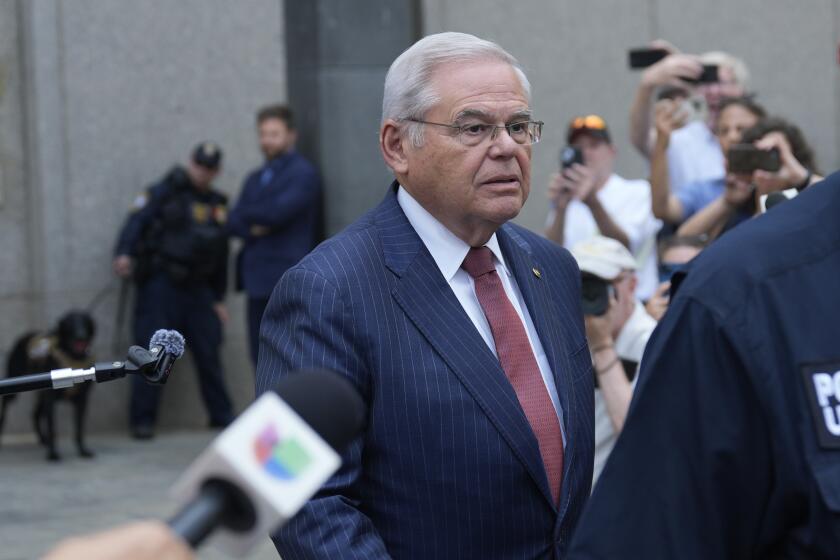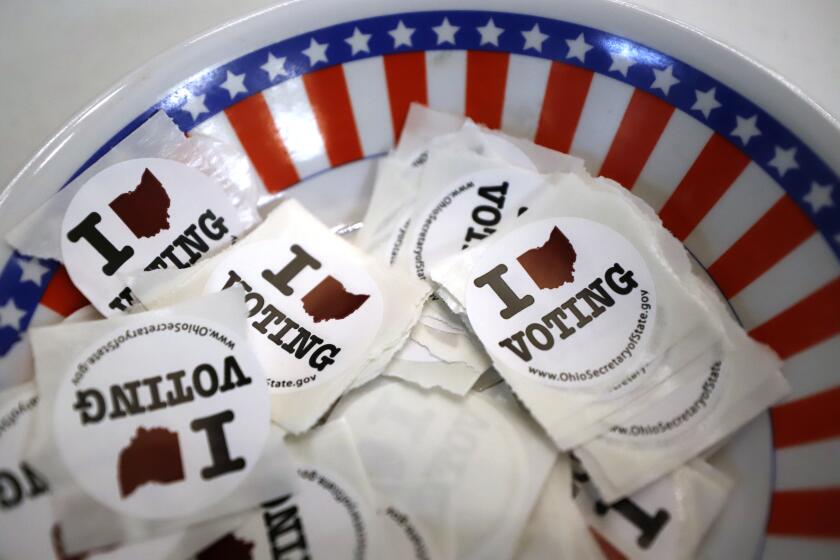Barr Opposed to Roe vs. Wade Decision : Justice Dept.: The attorney general-designate tells Senate panel right to privacy does not extend to obtaining an abortion.
Atty. Gen.-designate William P. Barr, revealing his view on abortion for the first time, said Wednesday that the Supreme Court’s 1973 Roe vs. Wade decision legalizing abortion was wrongly decided and should be overturned.
Testifying at the second and final day of his Senate confirmation hearings, Barr said he believes that the right to privacy is in the Constitution, but that it did not extend to abortion as the Supreme Court said it did in the 1973 case.
Sen. Joseph R. Biden Jr. (D-Del.), Senate Judiciary Committee chairman, seemed startled by Barr’s answer to the question on “a woman’s right to choose” that was asked by Sen. Howard M. Metzenbaum (D-Ohio).
Biden, who noted he did not agree with Barr, said the nominee’s response was “the first candid answer” he had heard on the supersensitive question--one that judicial nominees traditionally refuse to answer. “It’s astounding to me,” Biden said. “You should be complimented.”
Barr, speaking in the flat, matter-of-fact tone that he has voiced throughout the unusually placid hearings, said the question of allowing abortions is “a legitimate issue for state legislators. That’s where the decision ought to be.”
He noted that his views are consistent with those the Justice Department has taken since 1983 under both Presidents Bush and Ronald Reagan.
Barr said he had “no fixed or settled views” on the scope of the right to privacy, but that “I do not believe it extends to abortion.”
As the committee wound up its hearings on Barr with indications that a panel vote could come later this week, Barr noted that Roe vs. Wade remains “the law of the land” and will be “until it’s overruled.”
Barr’s testimony before the committee and the warm reception given him by both Democrats and Republicans on the panel are in sharp contrast to the sharp exchanges that often punctuated former Atty. Gen. Dick Thornburgh’s appearances before the same group. The Senate is likely to act on Barr’s nomination before breaking for a Thanksgiving vacation.
In another departure from past Justice Department resistance, Barr told the committee he had asked a retired federal judge to review allegations that department officials had conspired to force a computer software firm into bankruptcy.
Former Atty. Gen. Elliot L. Richardson, now an attorney for the Washington-based firm Inslaw, has called for appointment of a special prosecutor in the case.
Barr, responding to questions from Sen. Paul Simon (D-Ill.), said he did not think naming an outside prosecutor was “either necessary or desirable.”
Instead, he said he asked Nichaola Bua, who retired as a federal judge in Chicago Monday, to serve as “a special counsel” in the matter to advise Barr if anything further should be done. Bua was named to the federal bench by former President Jimmy Carter in 1977.
In 1987, a federal bankruptcy judge awarded Inslaw $7 million after finding that Justice Department officials had used “trickery, fraud and deceit” to obtain computer software that Inslaw had created for federal prosecutors under a government contract.
But the ruling was overturned by the U.S. Circuit Court of Appeals here on grounds bankruptcy judges had no authority to make such findings. The appeals court did not rule on the merits of the judge’s decision.
The firm’s owner, William Hamilton, has since alleged that former Atty. Gen. Edwin Meese III and aides conspired to turn over Inslaw’s software to a firm owned by a longtime Meese associate, Earl Brian. Meese, Brian and others accused by Hamilton and his lawyers have denied the allegations.
Barr noted that the case had dragged on for a long time and that it now involves “layer after layer of allegations--some of them strange.
“I’m not aware of any impropriety ever being established,” he said. “However, I am interested as this case goes on and on to get to the bottom of it, to bring it to some kind of resolution.”
More to Read
Get the L.A. Times Politics newsletter
Deeply reported insights into legislation, politics and policy from Sacramento, Washington and beyond. In your inbox three times per week.
You may occasionally receive promotional content from the Los Angeles Times.






